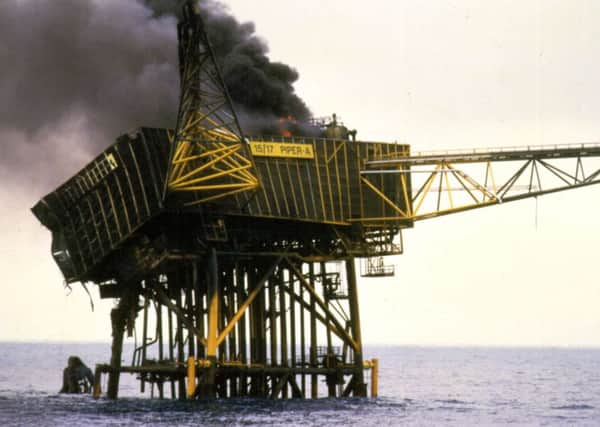Piper Alpha inquiry author calls for safety '˜reporting culture'


Lord Cullen of Whitekirk pressed the case for a thorough “reporting culture” within the industry.
He spoke as he issued a call to sector leaders to be alert to signs of danger, highlighting past examples in the industry and further afield in which warning signs that were not acted upon resulted in tragic consequences.
Advertisement
Hide AdAdvertisement
Hide AdLord Cullen was giving a keynote speech at Oil & Gas UK’s Safety 30 conference, taking place in Aberdeen almost three decades on from the Piper Alpha tragedy.
The North Sea platform off the coast of Aberdeen exploded in July 1988, killing 167 people. A subsequent inquiry led by Lord Cullen resulted in more than 100 changes to safety practice.
Introducing his talk on “signs of danger” on Tuesday, he said: “There is much to be learnt from the reasons for major accidents, by which I mean the underlying reasons for those accidents.
“Those factors tend to recur, whatever the context, so they remain highly relevant despite differences in conditions over the course of time.”
He told the audience at the Aberdeen Exhibition and Conference Centre: “When I read reports about major accidents, I’m struck by how frequently they had been preceded by signs indicating danger.
“But those signs were not recognised or, at any rate, effectively acted on to prevent the accidents in question, or at any rate to limit their extent.”
He told how signs of danger can take a variety of forms, such as a previous accident at work, a report pointing out signs of danger in the workplace or cases where “people may be so accustomed to things happening, they don’t recognise them as dangerous”.
Lord Cullen warned it is “perilous to ignore” the factors which underlie major incidents and said there is no point in having investigations that do not lead to a lasting improvement in safety.
Advertisement
Hide AdAdvertisement
Hide Ad“Sometimes the warning signs are in reports about danger,” he said.
He highlighted reports issued in the 1980s which pointed to possible risks associated with the Piper Alpha platform ahead of the tragedy.
“In the event, those reports predicted what actually happened on the night of the disaster,” he said, adding that management had shown a “dangerously superficial approach” to the identification of potential hazards.
Lord Cullen cited the examples of various high-profile disasters over several decades around the world in making his points.